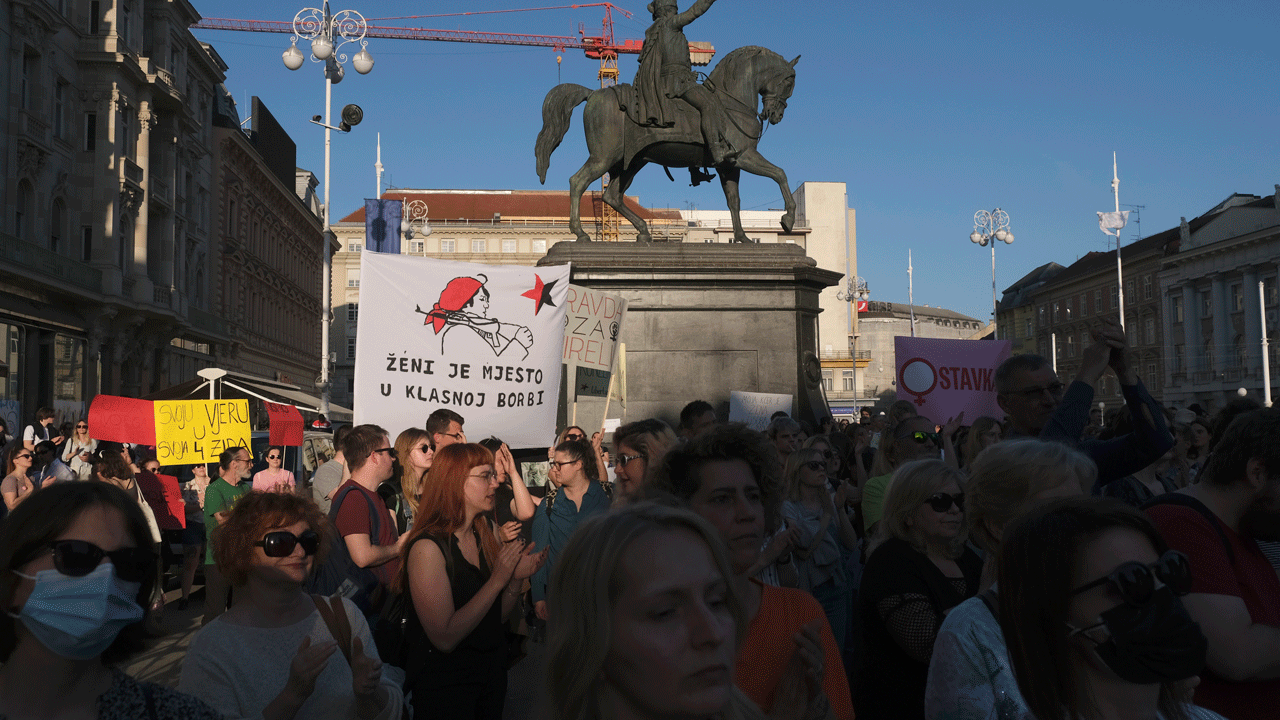In a historic move, France has become the first and only country in Europe to enshrine the right to abortion within its constitution, signaling a bold stance on reproductive rights amid growing concerns over the potential rollback of abortion access seen in other parts of the world, particularly in the United States. This development comes as abortion remains broadly legal across Europe, with over 40 nations from Portugal to Russia offering varying degrees of access to the procedure. However, the landscape is not uniform, with countries like Poland and a few others imposing strict restrictions or outright bans.
Mathilde Philip-Gay, a law professor and specialist in French and American constitutional law, emphasizes the significance of France’s constitutional amendment: “It may not be an issue today in France, where a majority of people support abortion. But those same people may one day vote for a far-right government, and what happened in the U.S. can happen in Europe.” She asserts that incorporating the right to abortion into France’s constitution will fortify these rights against future challenges.
Across Europe, the state of abortion rights varies significantly:
– Poland faces stringent abortion laws, allowing terminations only in cases where the woman’s life or health is endangered or the pregnancy results from rape or incest. Recent government changes have sparked debates over possibly easing these laws, though resistance remains.
– Britain considers legislative changes to decriminalize certain aspects of abortion under the 1861 Offences Against the Person Act, reflecting less divisiveness around the issue compared to the U.S.
– In the Western Balkans, historical legislation from Yugoslavia’s era continues to support abortion rights, with recent discussions in countries like Serbia and Croatia reflecting ongoing debates and attempts at restrictions.
– Malta has slightly loosened what was the EU’s strictest abortion law. However, it remains highly restrictive, requiring a woman to be at risk of death and multiple specialists’ consent for termination to proceed.
– Italy and San Marino showcase the tension between religious beliefs and reproductive rights, with both ensuring access to abortion despite significant pressures and historical resistance.
– Russia, amidst efforts to promote “traditional values” and population growth, has seen regional attempts to restrict abortion access, highlighting the complex dynamics between governmental policies and women’s reproductive rights.
France’s constitutional guarantee of abortion rights sets a precedent in Europe, illustrating a firm commitment to safeguarding women’s autonomy and reproductive freedom. This move not only consolidates France’s position on the issue but also ignites a conversation across Europe about the necessity of protecting and potentially expanding abortion rights in the face of emerging challenges.
As Europe navigates these complex and varied landscapes of abortion rights, France’s constitutional amendment serves as a beacon of progress, underscoring the importance of solidifying these rights against future political and societal shifts. The ongoing developments in European countries highlight the diverse approaches to reproductive rights, reflecting broader global debates on the balance between individual freedoms and governmental regulation.







